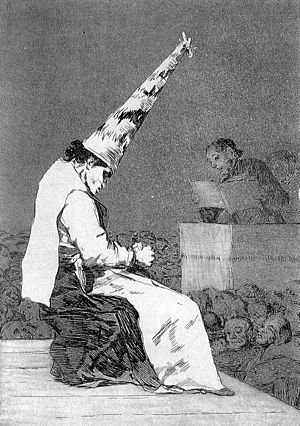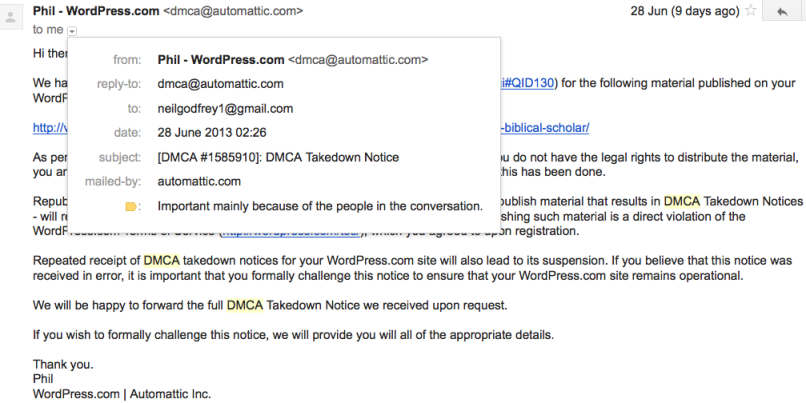Dr McGrath, after I demonstrated that he once again claimed a mythicist wrote the opposite of what he really did write, has quaintly responded with a post titled Why Do Mythicists Care So Little About Facts and Details? in which he writes a revisionist account of his original post.
With a beautiful irony McGrath opens with an astonishingly cavalier disregard for the facts and details that both Richard Carrier and I have ever written about scholars such as Thompson and Noll with respect to mythicism:
[Neil Godfrey] repeats Richard Carrier’s claim that mythicism is embraced by individuals like Thomas Thompson (who has distanced himself from mythicism) and Kurt Noll (whose contribution to Is This Not the Carpenter?
is rather wonderful and does much to undermine mythicism).
Here was my quote from Richard Carrier:
Combine this with Brodie’s defection to mythicism, alongside Thompson’s, and (like Thompson’s) the publicly professed “historicity agnosticism” of Arthur Droge, professor of early Christianity at UCSD, and Kurt Noll, associate professor of religion at Brandon University, and Ehrman’s argument that only amateurs and outsiders take the Jesus Myth theory seriously is now in the dust. There is still, certainly, a litany of crank and amateur mythicist nonsense. But there is also a serious case to be made, by serious and well-qualified scholars. And they need to be paid attention to, not dismissed and mistreated, their arguments straw manned or ignored.
So McGrath is once again careless with the facts and details. That is not a claim that Thompson and Noll “embrace mythicism”. They do not. Carrier clearly states Droge and Noll are “historicity agnostics”! The point is just as damaging to McGrath’s case, however. They are not viscerally hostile towards the Christ Myth possibility as is McGrath. They acknowledge its plausibility. McGrath can never accept even that much. Never.
I don’t know if Carrier has ever said Thompson “embraces” mythicism. I certainly have never said any such thing. I have always been quite clear about Thompson’s own case. Thompson addresses the nature of the evidence that we rely upon for Jesus and argues for its stereotypical nature. The same type of literature is found elsewhere applied to both historical and mythical figures. Thompson is, as he writes in the very article McGrath hand-waves readers to study (does McGrath ever stop to take note of the detailed contents in any of the citations he hand-waves people to look at?), pointing out that the prevailing assumption of the historicity of Jesus is problematic given the nature of the evidence we have:
I wrote my monograph of 2005 in an effort to explore the continuity of a limited number of themes which were rooted in ancient Near Eastern royal ideology—an issue which is not only marginally related to questions of historicity, but one which also has much to say about the perception of history and historical method among modern scholars. . . . It is a small book, and its ambitions are few: hardly more than to point out that our warrant for assuming the existence of a historical Jesus has important limits.
Yes, his argument has the potential to open up the question of mythicism. But Thompson himself is not addressing mythicism per se. I know his argument reasonably well, I hope, because I believe my own arguments are very strongly influenced by Thompson’s. That’s why I have generally avoided the label “mythicist” for myself.
McGrath’s hyper-sensitivity in this area does not seem to benefit him with any capability of understanding such subtleties.
Er, no, I meant he tried to publish with the wrong companies
In my initial response to James McGrath’s review of Thomas L. Brodie’s Memoir, I zeroed in on a single remark by McGrath that grotesquely misrepresented what Brodie himself explicitly wrote. I explained why I was not writing a comprehensive response at that time and why I chose to single out that one point for attention.

McGrath was trying to establish a point that the reason Brodie’s thesis was not published had to do with unscholarly methods and not its conclusion that Jesus was not an historical person. He needs this to be true to argue a case that the only reason mythicism is rejected is that it is not based on sound scholarship. Hence he stressed:
Brodie indicates that he had this conviction even before he had learned to do scholarship, and that his inability to find a publisher very early on was a result of things like poor grammar, lack of footnotes . . . (see the complete sentence below)
But although his idea was concocted prior to his learning how to do scholarship . . .
I recommend that this book be widely read. It illustrates the bankruptcy of Jesus mythicism, and the fact that it has the potential to ruin careers, not because there is ingrained antipathy to it in the academy, but because the case for it is based on thoroughly unpersuasive arguments, and the complete disregard for other possibilities, . . .
The book can serve as a warning to young scholars to be open to criticism and feedback (and to more established scholars to provide honest and clear feedback, since I found myself wondering whether anyone actually told Brodie that he was using dubious methods and criteria to produce dubious results).
Specifically, the words of McGrath I was exposing as a blatantly false portrayal of what Brodie himself explained about the reason his manuscript was not published were these:
Brodie indicates that . . . his inability to find a publisher very early on was a result of things like poor grammar, lack of footnotes, refusal to accept criticisms of and feedback on his claims and interpretations, and attempting to find a Christian publisher for what he wrote on the subject (pp.32,35,40,42).
All of a sudden, in his second defence of his initial review, McGrath is now telling us that the last line of the above was his main point! Brodie’s real problem was that he was going to the wrong sort of publisher! We will soon see how questionable this take is. Continue reading “Ongoing Disregard for Facts and Denials of Old Criticisms (yes, McGrath again, sorry)“

